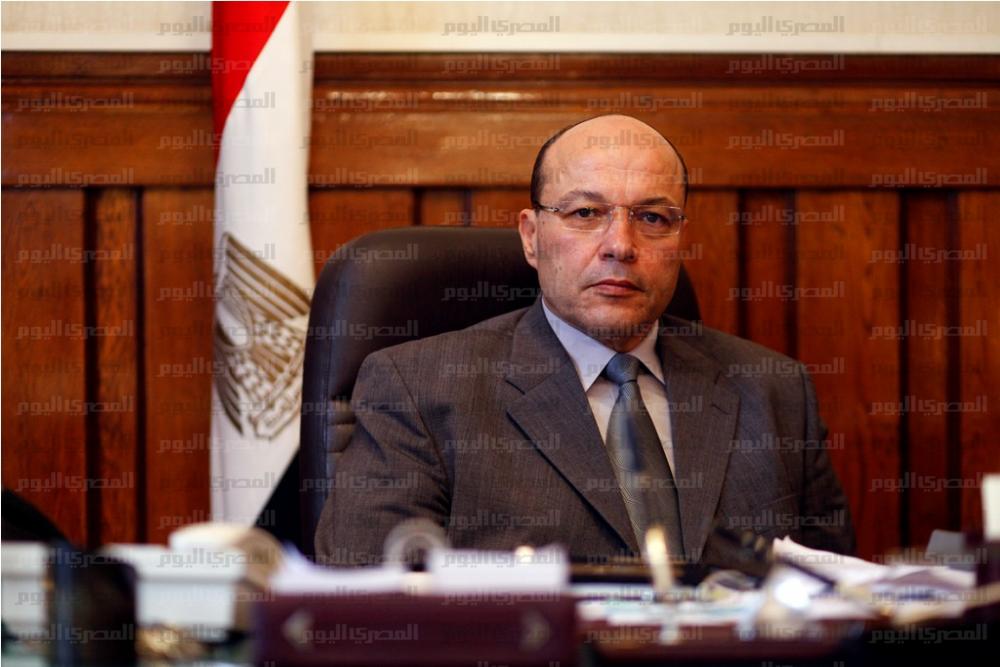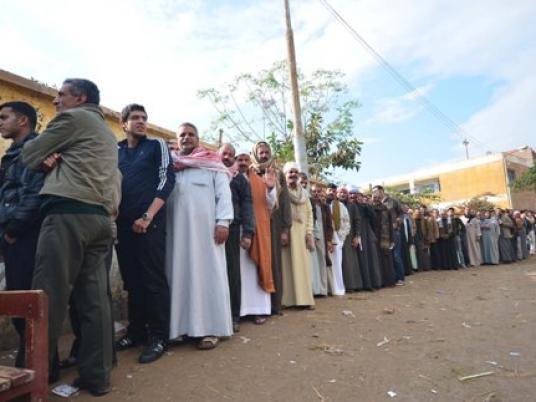An eclectic mix of calligraphers, print shop owners, fake candidates, body guard agencies, thugs, cheer leaders and tent fabric traders impatiently await the People’s Assembly elections every five years to make huge profits, reports Al-Wafd paper, published by the liberal Wafd Party. The paper dedicates almost two pages–one dealing specifically with Alexandria–of its elections’ coverage to the issue. These businesses constitute the backstage of campaign spending, complementing the more overt forms of campaign spending such as the distribution of meat ahead of the November elections.
Fabric banners cost around LE35-100 depending on the size and color used, according to Al-Wafd’s coverage. A print shop owner in Al-Azar told Al-Wafd that candidates print around 10,000 posters during the election season. Two-color posters cost LE1500, while four-color posters cost LE3000. A calligrapher in the Gumruk district of Alexandria points out that candidates began their campaigns in August, using congratulatory posters, and setting the ground for the elections. Several calligraphers prefer to deal with the National Democratic Party, since it is a “safer” option.
Coffee shop owners make an approximate 400 percent profit during the election season (around LE1500 a day) as candidates often use coffee shops as their home base, holding meetings with district residents, and putting up campaign materials in exchange for a daily fee.
The election season also causes owners of fabric tents, used to accommodate weddings and funeral services, to halt their regular commitments and turn their attention to the lucrative business of elections. Tents set up for campaign rallies cost LE3000–10,000 each.
Around 3000 body guards specializing in elections work in Alexandria. Candidates hire body guards to show off in their districts and as personal assistants. Body guards can either be hired for the entire campaign season, or on the day of elections, or when electoral conferences are held, and earn at least LE500 per day. They accrue additional costs for meals and medical treatment.
Thugs, especially women, earn LE800 to verbally abuse competitors and LE300 to defame a competitor in his district. Regular thugs are usually ex-convicts whose wages are commensurate with their rap sheets. They make around LE100-150 to protect candidates from their competitors, and guard campaign materials. Candidates also hire cheer leaders who cheer for them as they tour districts or electoral conferences. Due to the dearth of cheer leaders specialized in elections in Egypt, cheer leaders can make more than LE10,000 during the election season.
Finally, “fake" candidates, who have no chances of winning, deliberately compete against businessmen, making around LE50,000 in return for withdrawing their candidacy.
In other news, several candidates are using the occasion of the Eid to slaughter animals and distribute meat to their districts’ residents. Candidates are racing to slaughter animals in Port Said, Alexandria, and Menufiya, reports Youm 7. Eight cows were slaughtered in Kamal al-Shazli. Interestingly, a fight broke out in Shubra when poor residents infiltrated a nearby district of a candidate who was distributing meat, but election thugs prevented them from getting the meat when they discovered they were not residents of that area.
Youm 7 also reports that wealthy NDP candidates in Alexandria distributed meat and organized Haj raffles in their districts. An NDP candidate in the district of Bab Shark, Mohammed Moseilhi, put up campaign materials on the side of carts used to distribute meat.
In Fayoum, candidates are competing over where to slaughter animals and sell discounted meat, according to Youm 7. Some candidates sold meat for LE40 rather than LE70 per kilogram. All candidates are planning to distribute clothes and presents to poor children.


